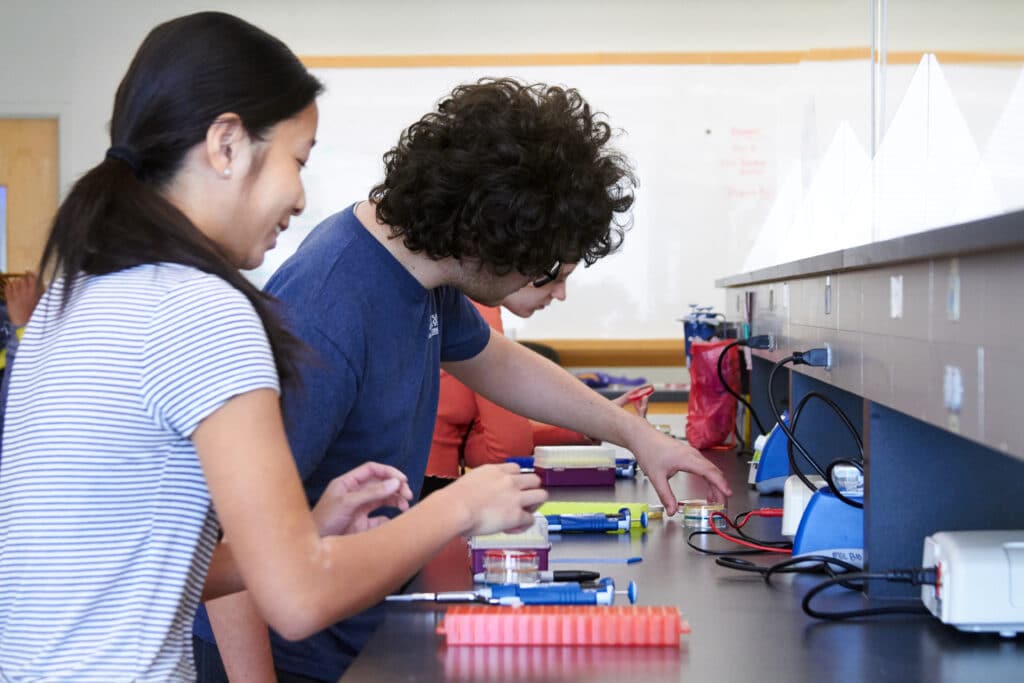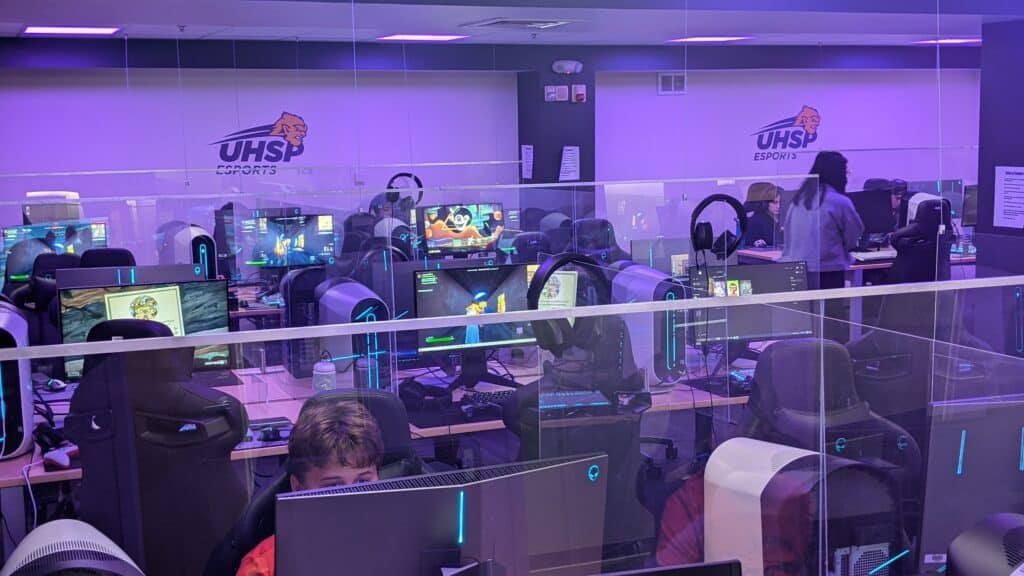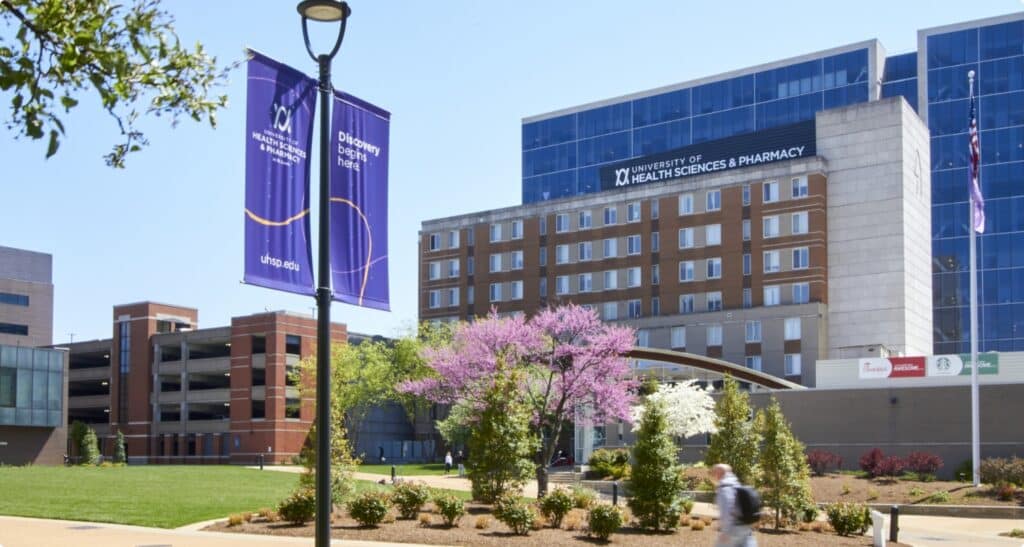SUMMER CAMPS AND PROGRAMS AT UHSP
When the school year ends and summer heats up, you’re invited to cool down on campus while exploring and learning the fun side of science and health. With a variety of summer camps and programming options open to the St. Louis community, you’re sure to find something to enjoy.
Health Care Summer Immersion Program
This week-long, overnight academic enrichment program offers high school students the opportunity to explore health care careers and experience life on a university campus in the heart of St. Louis.
Participate in exclusive hands-on activities, like college-level lectures and labs, and explore campus and our neighborhood through group trips all while making lifelong friendships.


Esports Summer Camps
This day camp, offered in multiple weeklong sessions, blends gaming and STEAM careers in a unique, fun way to fill your summer days. Each day, campers split their time between STEAM career exploration featuring guest speakers and gaming competitions in the UHSP Esports Arena.
Summer Arts Camps
Learn and experience fun, new things during Summer Arts Camps facilitated by Center of Creative Arts (COCA). Campers will enjoy a unique and fun-filled summer experience on the UHSP campus taught by professional artists and teachers.


Interested in Hosting an Event at UHSP?
The University has a number of unique spaces perfect for your needs — from large auditoriums to small classrooms to event rooms and athletic facilities.